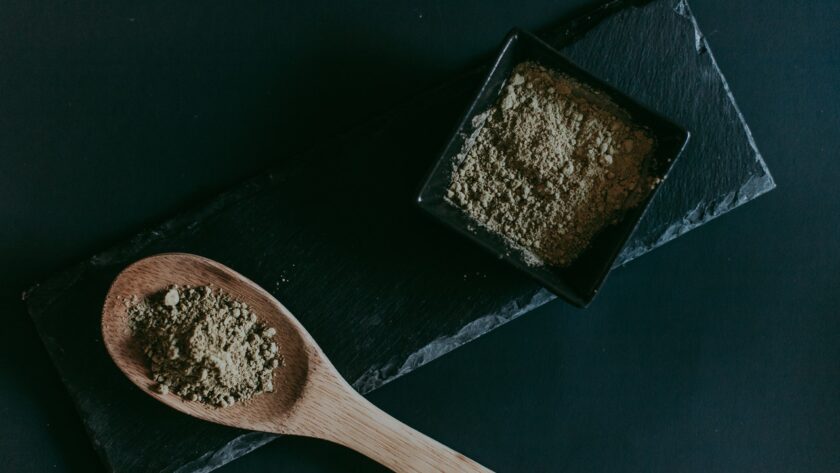Kratom is a herbal extract that originates from Southeast Asia. It is used for recreational and medicinal purposes due to its psychotropic and opioid-like properties. When you ingest kratom, it goes through the liver, breaking it down into different chemicals. For this reason, it’s essential to understand its effects on the liver.
When you ingest a strain like Green horn kratom, you get a relaxed and focused mind, but it first goes through the liver for processing before it enters the bloodstream. So, you must be wondering whether kratom causes liver damage during this process.
Research shows that kratom extract has no direct link to clinical liver damage when used in the proper dosage. But you must remember that everything can be harmful if not used appropriately.
The Role Of Liver in Kratom Digestion
The liver is a large organ found in the upper right quarter of the abdominal area. Its main functions are to filter toxins in the body and make chemicals easier to absorb. Due to the opioid-like properties found in kratom, it passes through your liver for metabolism just like any other drug.
The active ingredients of kratom are a group of 12 alkaloids with a sheer volume, making it hard for the liver to process efficiently. However, it is essential to note it is rare for people with healthy livers to experience any difficulties in metabolizing kratom. People with pre-existing conditions, genetic defects, or taking toxic liver drugs should avoid using kratom.
Mitragynine is the most common alkaloid in kratom, which mainly requires the liver enzyme CYP2D6 for digestion. Any drug that affects this enzyme will increase the chances of getting liver damage.
Image source: Pexels.com
Hepatotoxicity
Occasional use of high doses of kratom does not pose any danger to the liver, but regular high use has the potential for liver damage within 1-8 weeks if you are using powder form, capsule, or tablets. So, while kratom is generally safe, its abuse increases the workload of cells, causing liver toxicity. It may cause intrahepatic cholestasis in extreme cases, resulting in excessive release of high bilirubin of above 20 mg/dL. The condition may also be accompanied by bone marrow toxicity and severe renal failure.
With this condition, your liver biopsy may seem large and tender, and your liver function tests (LFTs) may have high levels of ALT enzymes. Some of the signs you might watch out for are:
- Fatigue
- Nausea
- Pain
- Dark urine
- Yellowing of the skin
Image source: Pexels.com
However, getting intrahepatic cholestasis is rare and only affects people with other medical issues such as hepatitis. Taking the product in the correct dosage will not affect the hepatocytes cells involved in metabolism and detoxification.
How to Use Kratom Safely To Avoid Liver Damage
Kratom does not have adverse health effects when used in moderation. So, to avoid liver damage, you should not overdose on kratom. Here are some of the precautions you should take when using kratom.
- Avoid buying kratom extracts from the black market since such products may contain unnecessary liver-toxic ingredients.
- If you are a first-time user, starting with a small dose is wise until you understand what works well with your system.
- When taking the dried powder, researchers recommend a dose of 1 to 12 grams in a day.
- Do not mix kratom with other drugs such as alcohol or stimulant-related medicines.
- Eat healthily and take a lot of water within the first five hours of taking kratom.
- Seek your physician’s advice before using kratom or in case you take any medications or supplements for your pre-existing health conditions.
Also, visit your physician immediately if you experience symptoms such as headaches, nausea, fatigue, and dizziness, which last for more than six hours.
How to Treat Kratom Overdose
There are growing concerns about kratom overdose because of the lack of clear guidelines on dosage. Also, there are fewer checks and guidelines governing its use for pleasure. This means that each individual should take precautions and ensure the safe use of kratom.
Some of the signs that might show a user is overdosing are:
- hallucinations
- confusion
- insomnia
- drowsiness
- loss of appetite
- dry mouth
- increased urination
The adverse effects should be a sign for you to slow down on kratom to avoid liver injury. If you want to use kratom medically to overcome opioid use, find a professional to give you the proper dosage.
If you suspect that you’ve had a kratom overdose, discontinue its use for some time to give your body time to reverse the effects. Naloxone can also be used in severe cases of overdose. Concurrently, it would help if you drank a lot of water to excrete kratom out of your bloodstream.
Image source: Pexels.com
Conclusion
It is possible kratom can cause injury to your liver, but such cases are rare. Only people with existing health conditions or users using other prescribed medications are at high risk of overdose. The majority of users don’t experience any adverse effects even when they kratom for a long time.




